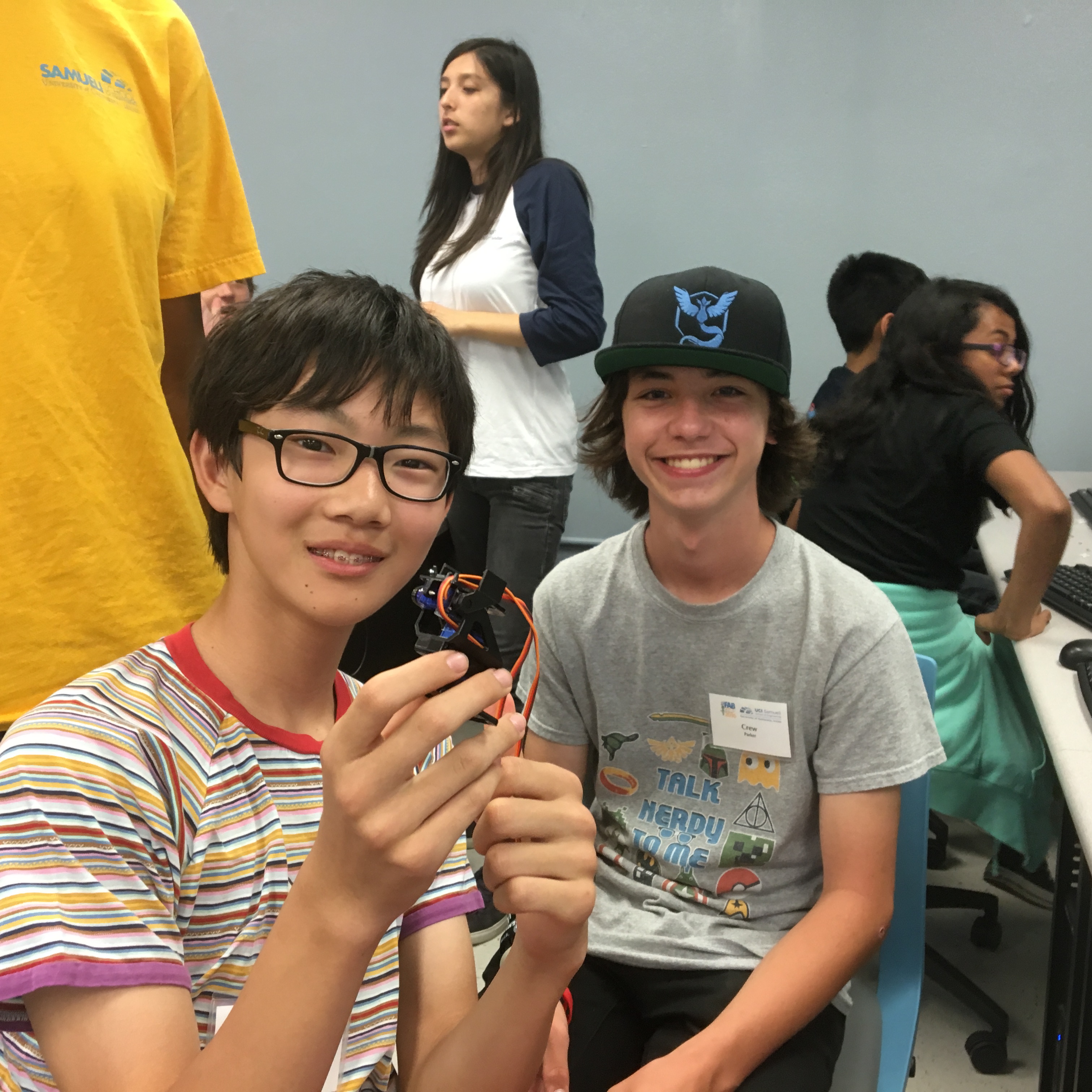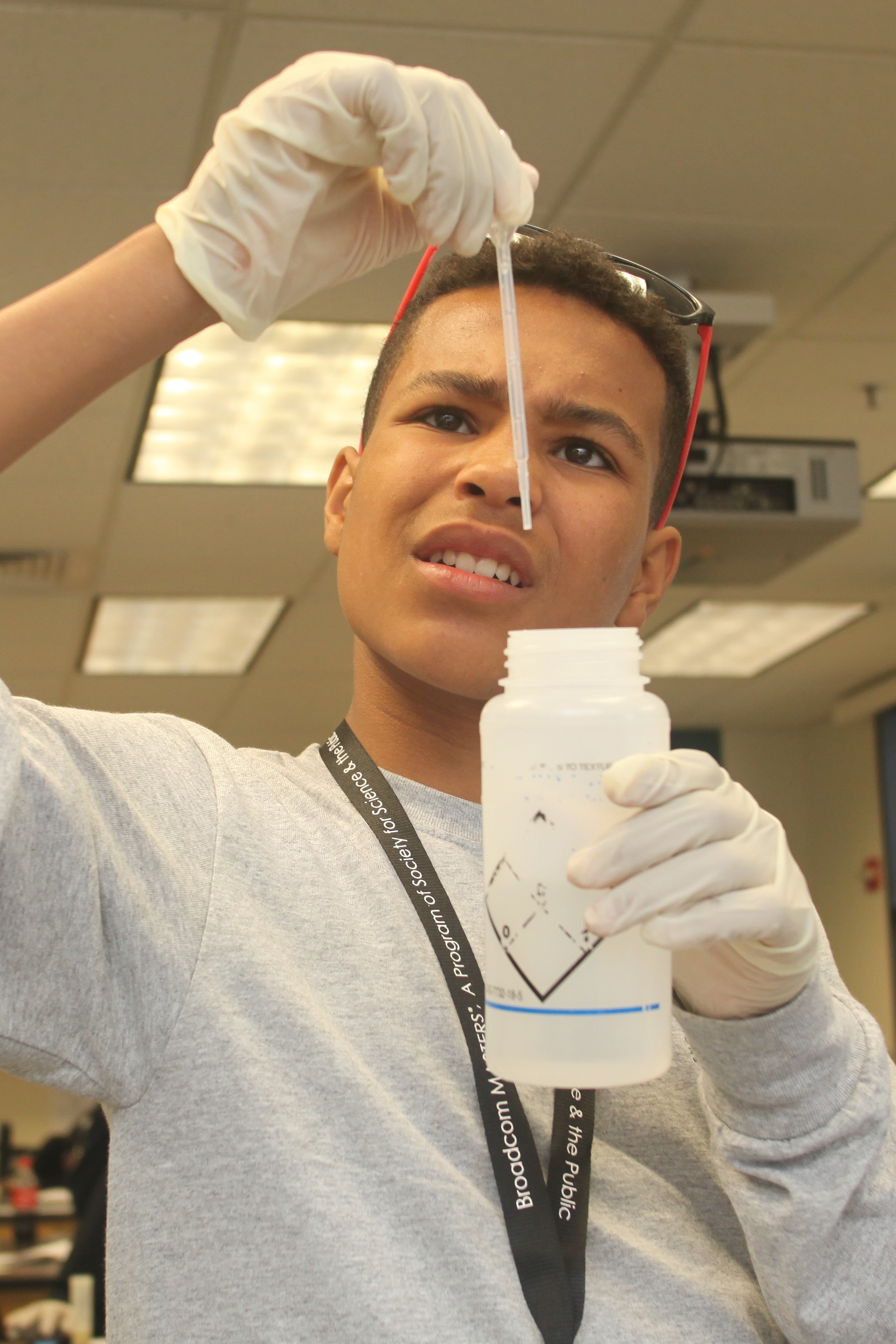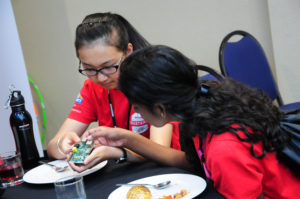Pi Day: Celebrating One University’s Quest to Inspire Everyone to Code — Scratching the Surface of What is Possible
Program Highlights
Today – March 14th - marks International Pi Day – Pi (Greek letter “π”) is the symbol used in mathematics to represent a constant — the ratio of the circumference of a circle to its diameter — which is approximately 3.14159…. and so on. Pi has been calculated to over one trillion digits beyond its decimal point!
International Pi Day is a great time celebrate math and celebrate those who strive to introduce computer coding to all. Not just because we think coding is fun (and it is once you get the hang of it,) but because there are over 2.4 million STEM jobs waiting to be filled by young and old alike.
“If more students and workers aren’t inspired to stick with STEM and coding, we will not have the millions of new workers needed [to make] our connected world a reality,” according to Time Magazine’s Tim Bajarin in his article How STEM Skills Are the Next Great Equalizer.
One university is leading the quest to inspire students to stick to STEM with 10 individual programs that use a teeny, but powerful (and affordable) computer invented by celebrated Broadcom engineer Eben Upton called the Raspberry Pi.
The Henry Samueli School of Engineering at University of California, Irvine (UCI) has unique programs that are teaching kids to code and develop real-life problem solving skills in a cool way.
One program is FABCamp that is designed to teach middle school students to understand the world of engineering through hands-on interactive projects that involve coding. It's the most comprehensive informal learning program of its kind in the United States -- encompassing 10 engineering disciplines in an action-packed one-week period.
“Our goal is to cultivate students who have an inherent love of engineering and who would major in it in college,” said Gregory Washington, the Stacey Nicholas Dean of Engineering at the University of California, Irvine. “We are providing a national model that other institutions will adopt, inspiring the next generation of innovators and inventors.”
We caught up with 14-year-old Crew Parker and his mom, Alex, who completed 3 levels of FABCamp and gained coding and programming skills with the Raspberry Pi while also building a real-world Internet-connected device.
“FABcamp taught me actual skills like CAD, programming and laser cutting that I never thought I could do,” said Crew. “I’m using the skills I learned at FABcamp in my Robotics club and teaching the other kids, too.”
I truly believe that FABcamp has positively influenced my child’s future more than any other single activity or academic experience in his life,” said Alex. “Because of FABcamp, our child has both competence and confidence that he can engineer and make anything that he imagines. “Thanks to this experience, our child hopes to have a career in engineering."
Another program inspiring confidence to high-achieving students from diverse backgrounds (specifically populations underrepresented in engineering and computing) is called 100 Black Men of Orange County Passport to the Future Program. One of several outreach programs housed under the Samueli School of Engineering’s Office of Access and Inclusion, the program aims to equip middle and high school students with critical academic and career skills to be leaders in STEM.
One Saturday a month, 50 young men begin with an introduction to electronics (circuitry, microprocessors and history on the African-American inventors who paved the way to create the PC). Then, they move into the lab to use the Raspberry Pi to program buzzers, detect motion and simulate traffic signals, learning how actuators, motors and sensors really work. At the end of the program, students work in teams on final projects, creating an operational robotic vehicle powered by the Raspberry Pi.
In December 2016, Dean Greg Washington attended a Picademy, a free, intense 2-day teacher training workshop using the Raspberry Pi. Partnered with a teacher without any prior experience in coding or programming, Dean Washington and the teacher explored new ways to teach enabling technologies. Within a day, the teacher was developing an Internet of Things (IoT) project using Python programming language.
“The ingenious aspect of Raspberry Pi and their instructional approach is that the barrier of entry is so low from both a cost perspective (the device costs roughly $35 dollars) and the requisite technical skills,” said Washington. “When a K12 teacher and Dean of an Engineering School can be paired up at a workshop and both feel as though the playing field is level, you are truly on to something. When the K12 teacher and Dean walk away from the experience equally inspired and engaged, it is clear that we have only scratched the surface of what is possible.”
Picademy is coming to Orange County this summer and applications for interested educators around the country are open now! Learn more and apply here (applications close on April 27).
The two Picademy sessions will take place at UCI from June 19-23. Between sessions, there will be a “Raspberry Jam” hosted at the Discovery Cube of OC when, on June 21, the public will be invited to learn how community organizations use Raspberry Pi to inspire learning to code to kids throughout Orange County.
See you there!

